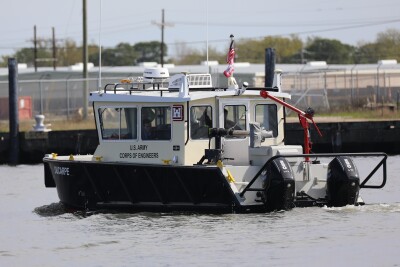In our current issue, correspondent Mike Crowley writes about how shipyards are finding and training welders. We have written and blogged about this for years — it is no easy task for shipyards to find, train and retain good welders.
For years the conundrum has been how to find or create a good and reliable pipeline for welding candidates. Some say the problem is partially a result of cutbacks in vocational training at high schools and community colleges. Now, with the average age of shipyard workers at 55, according to one study, the problem has become magnified.
Many yards, including Washburn & Doughty, Blount Boats and Vigor Industrial, have been more aggressive on the welding front of late. Vigor, for example, has partnered up with community colleges to offer a highly intensive hands-on training approach that focuses on the specific skills that shipyards require.
Last week, I stumbled across a couple of Alaska Public Media reports that highlighted what Vigor is doing at its Ketchikan shipyard to find welders. The first story was about Vigor's new job training course for high school students it launched in the spring and how three of the students have stuck with the program. It told the story of one of the students, Kaila Del Rosario, 17, an observer in the new job-training program. In about a year, she’ll probably be a Vigor employee. “That’s the plan so far and I’m just going along with it and I find it really, really cool and exciting,” Del Rosario told APM.
The second APM report told about how Cat Wong, a 25-year-old pipe fitter and welder, got a job at Vigor in Ketchikan. She was born in the U.S., grew up in Singapore, and moved to Ketchikan when she was 21 to pursue a welding career.
It’s stories like these that should give shipyards hope that they can find a future pipeline for skilled welders.




